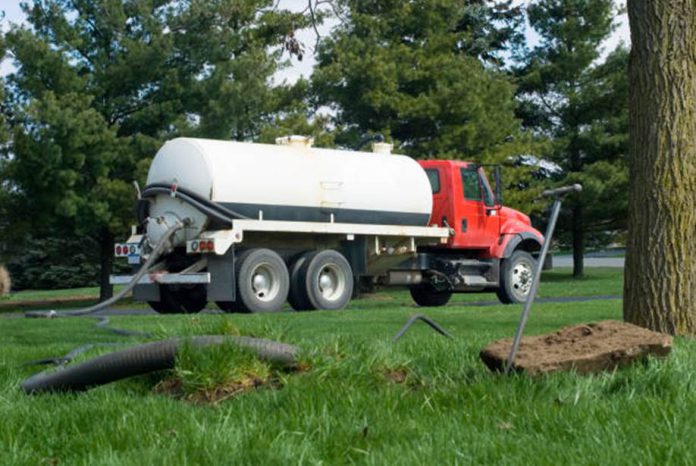Maintaining a healthy septic system year-round is essential for keeping your home free of plumbing issues, foul odors, and expensive repairs. While regular septic system care is important at all times, seasonal changes bring unique challenges that can affect your system’s performance. By following a simple seasonal septic care checklist, you can keep your system in great condition, avoid costly breakdowns, and ensure that it continues to function smoothly throughout the year.
1. Inspect the System Regularly
Routine inspections are crucial for ensuring the long-term health and efficiency of your septic system. It’s recommended to have your septic system inspected by a licensed professional at least once every three years. Inspections allow your septic provider to check the tank, pipes, and drain field for any damage, leaks, or other issues that could affect performance. During a routine inspection, the technician will also check the level of sludge and scum in the tank to determine if pumping is needed.
They’ll also assess the condition of the drain field, looking for signs of water pooling or soggy areas, which could indicate potential failure. Catching these problems early can prevent costly repairs down the road.
2. Pump Your Septic Tank
One of the most important steps in seasonal septic care is having your tank pumped regularly. Over time, solid waste builds up in the tank, and if it isn’t removed, it can cause blockages and backups. The general recommendation is to pump your septic tank every 3 to 5 years, depending on household size and water usage. However, if you notice slow drains or unpleasant odors around your septic system, it may be a sign that the tank needs attention sooner.
Having your tank pumped prevents waste from clogging pipes, which could lead to system failure and costly repairs. If you’re unsure when your tank was last pumped, it’s always best to schedule an appointment with your septic professional sooner rather than later.
For more information about septic system pumping, visit this EPA septic care page.
3. Monitor Your Water Usage
Excessive water usage can strain your septic system, especially during wetter seasons. Overuse can cause the septic tank to fill more quickly, leading to backups and system failure. Be mindful of water consumption and encourage your household to reduce waste by using efficient appliances, fixing leaks promptly, and avoiding system overload.
To keep your septic system in top shape, use water-saving devices like low-flow showerheads and faucets, and stagger water-intensive activities (like laundry) throughout the day. Also, avoid excessive water use during rainstorms, as wet ground conditions can oversaturate the drain field, hindering the system’s proper function.
4. Maintain Proper Drainage Around the System
Proper drainage around your septic system is crucial for optimal tank and drain field function. During seasonal changes, ensure that gutters and downspouts direct water away from the septic system. Excessive rain or standing water near the tank or drain field can overload the system, impairing its ability to filter wastewater. If drainage is poor, you may need to regrade the land to help water flows away from septic components. Also, avoid parking or driving over the septic system. The weight of vehicles or heavy equipment can compact soil over the drain field, damaging pipes and reducing the system’s filtering ability.
5. Keep the Drain Field Clear
The drain field plays a key role in absorbing and filtering wastewater from your septic tank. Keeping it clear of trees, shrubs, or large plants is essential, as their roots can infiltrate and damage the system, causing blockages and reducing efficiency. Avoid planting large trees or shrubs near the drain field, as their roots can obstruct the system. Stick to low-growing grass and ground covers that won’t disturb its operation. Regularly check for standing water, which could indicate drainage issues that require attention.
6. Be Mindful of What Goes Down the Drain
What you flush or pour down your drains can directly impact your septic system. Avoid flushing non-biodegradable items, such as diapers, wipes, or sanitary products, as they can clog pipes and damage the system. Also, refrain from pouring grease, oils, or chemicals down the drain, as these can interfere with the bacteria in the septic tank responsible for breaking down waste. Maintain a proper waste disposal routine and educate your household on what should and should not be flushed or poured down the drain to prevent unnecessary strain on your system.
7. Schedule Professional Maintenance
While you can take several steps to care for your septic system yourself, it’s crucial to have a trusted professional handle the more technical aspects of septic maintenance. An experienced septic contractor can perform a comprehensive inspection, pump the tank, and ensure that all parts of your system are in good working order. This professional care helps prevent future issues and extends the life of your septic system.
Get Expert Septic Care
Keeping your septic system properly maintained year-round is essential for avoiding costly repairs and keeping your system functioning smoothly. Whether you need a routine inspection, pumping services, or professional advice on how to improve your system’s efficiency, A Aaron Super Rooter is here to help. Our team of experienced septic professionals can keep your system in great condition and make sure it’s ready to handle any seasonal changes. To learn more about our services and how we can assist with all your septic needs, contact us today. Count on us to keep your septic system running smoothly!















